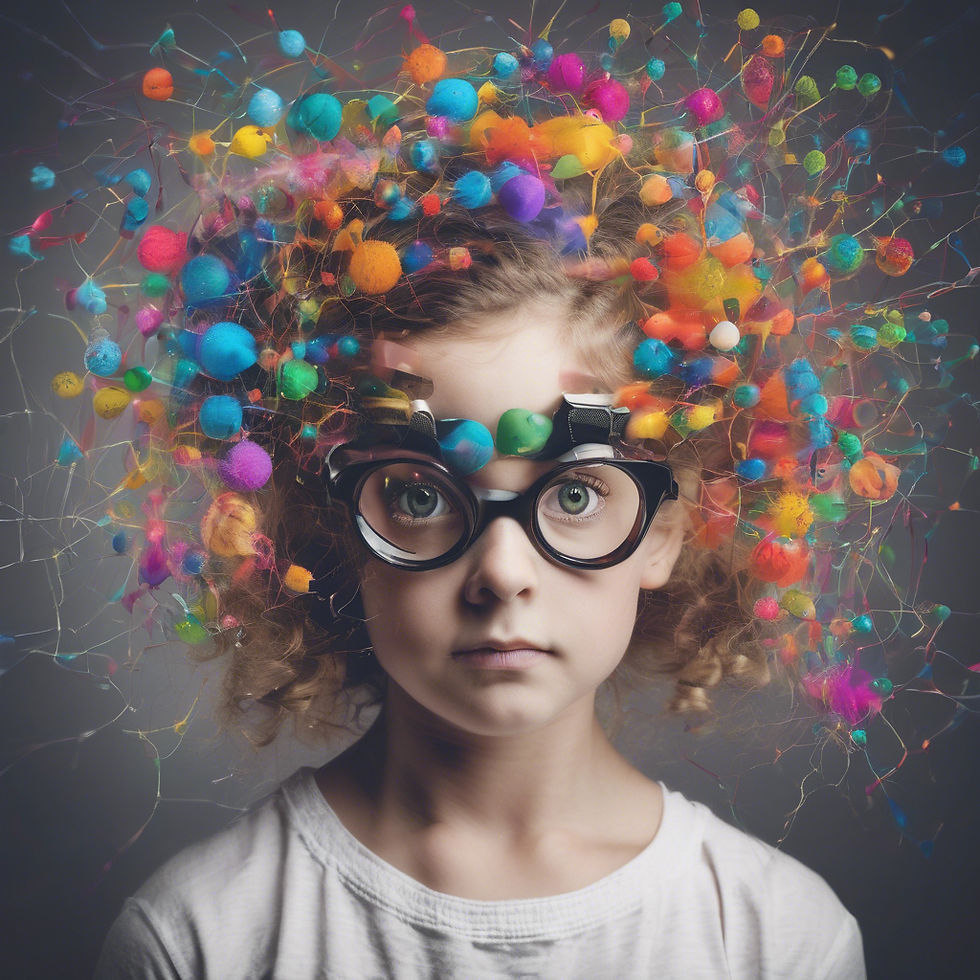The Nature of Creativity
- Caitlin Reid

- May 12
- 4 min read
Updated: Jul 18
In a recent class, one of my teenage students watched a short film made by another experienced participant and called it “truly creative” (and to be clear, I agree completely, it was fabulous in every way). The filmmaker, she explained, had made something that, as was her stated definition of creativity, “no one else could have thought of.” Her tone was sincere, admiring.
But the definition stuck with me: Creativity is when you make something no one else could have thought of.

In the moment, I didn’t know how to respond in a way that felt both gentle and supportive. I wanted to honor her wonder while also offering a more expansive lens.
My mind kept turning it over. Her words are still echoing in my head weeks later—enough to write a blog about it.
It’s a bold definition: to be creative, you must do something no one else has ever imagined.
And at fourteen, it made sense that she might believe that. When you’re still collecting data about the world and your place in it, it’s easy to think the field is wide open. There’s a kind of magical thinking that assumes infinite possibility—that if you just try hard enough, you can reach the outer edge of originality.
But here’s what I’ve come to believe, not just through teaching or filmmaking, but from observing how humans live and learn:
We are constantly influenced by each other. Trying to trace any idea back to a pure, untouched origin? It’s like trying to spot the first drop of rain in a thunderstorm.
The Myth of Total Originality
The problem with defining creativity as absolute originality is that it puts the entire focus outside yourself. It implies that creativity is only valid if it grabs the attention of the world, if it stuns an audience, if it can be proven or recognized. By that logic, unless your work earns a kind of cosmic novelty badge, it doesn’t count.
That’s not just wrong—it’s destructively perfectionistic (sometime, I'll write about how I consider perfectionism to be one of the greatest forms of self-harm).
Because if creativity is something you must prove to others, then it becomes a competition. A race. A burden.
What I’ve come to believe is far more human—and far more freeing.

Creativity As Integration
To me, creativity is about what you do with your lived experience. It’s not about where you rank, how different your output is, or whether anyone’s done something “just like it” before.
It’s about synthesis. Reflection. Insight.
Creative expression happens any time you take in the world—through experiences, stories, lessons, conversations—and combine those pieces in a way that feels meaningful to you. It’s not about novelty for novelty’s sake. It’s about authenticity, and thinking your own thoughts. It’s about showing up honestly, sometimes even quietly, and allowing your inner perspective to take form.
And that form doesn’t have to be a sculpture or a film or a published poem. It might be how you approach a tricky conversation, how you troubleshoot a software issue, how you style your home, or how you explain an idea to a child.
A Different Definition
So here’s how I define creativity:
Creativity is the practice of thinking thoughts you weren’t handed, and following them far enough to think, make, or do something of your own.
It’s personal. It’s interior. It’s not about impressing others—it’s about forming a relationship with your own mind.
The world needs that kind of creativity just as much in boardrooms and classrooms as in studios and galleries. It’s what allows us to imagine better systems, kinder relationships, and more honest ways of being. And it can’t be measured by likes, grades, applause, or awards.

Compare and Despair
There’s a saying: “compare and despair.” It applies deeply here. If your sense of creative worth depends on whether you can outdo someone else—or even just mimic someone else's style—you’ll always feel behind. Because you’re working from the outside in.
What if, instead, creativity began as an act of self-trust?
What if it didn’t require years of experience, fancy degrees, expensive gear, or perfect execution—but rather a willingness to tune in, reflect, and respond in your own voice?
Creative Living Isn’t Prescribed
I don’t believe we were put on this earth to become replicas of our surroundings. If the goal of life were uniformity, we’d all look and think and act the same—and we don’t. We would have been created in our optimal form, and would never change—instead, our only constant is change, and we are an exceedingly adaptable and flexible species.
Which tells me that our individuality isn’t an accident. It’s a feature.
Creative living, then, isn’t about performing for others. It’s about honoring the truth of your own mind. It’s about noticing your patterns, asking better questions, and letting your ideas evolve over time.
That kind of creativity isn’t loud or grand. It doesn’t need to be. It’s steady. It’s curious. And it’s real, and attainable for everyone.
Journal Prompt
What’s a moment in your life where you created something—or made a decision—that felt fully yours?
Describe what led to it, and what made it feel like it came from you.
Then ask yourself: What might creativity look like for me right now, even if no one else sees it?

Does this resonate with you? How might a thought about something mundane feel creative?
Comment below!



Comments